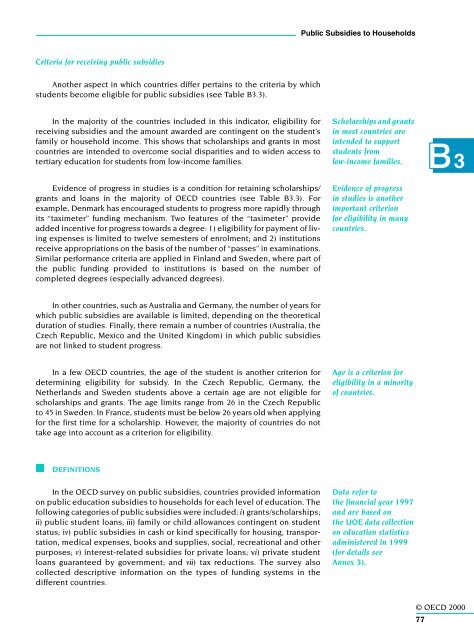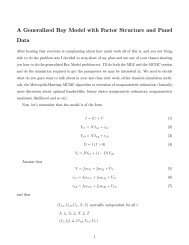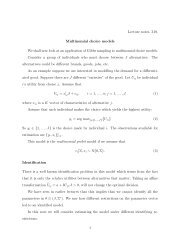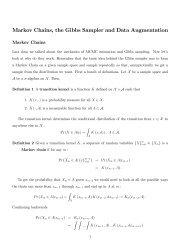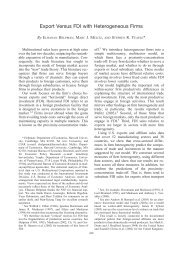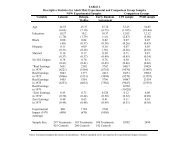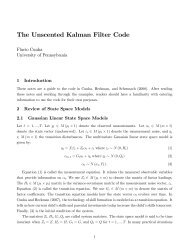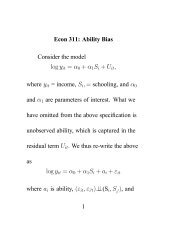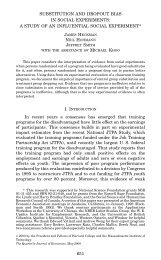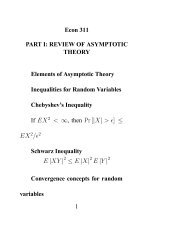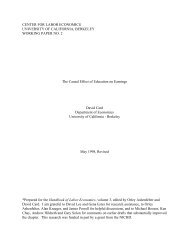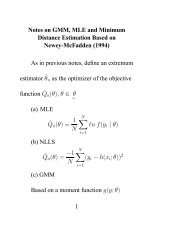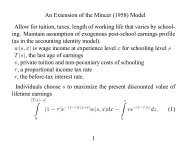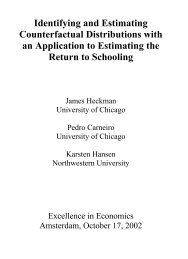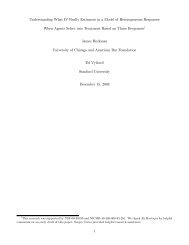OECD (2000)
OECD (2000)
OECD (2000)
You also want an ePaper? Increase the reach of your titles
YUMPU automatically turns print PDFs into web optimized ePapers that Google loves.
Public Subsidies to Households<br />
Criteria for receiving public subsidies<br />
Another aspect in which countries differ pertains to the criteria by which<br />
students become eligible for public subsidies (see Table B3.3).<br />
In the majority of the countries included in this indicator, eligibility for<br />
receiving subsidies and the amount awarded are contingent on the student’s<br />
family or household income. This shows that scholarships and grants in most<br />
countries are intended to overcome social disparities and to widen access to<br />
tertiary education for students from low-income families.<br />
Evidence of progress in studies is a condition for retaining scholarships/<br />
grants and loans in the majority of <strong>OECD</strong> countries (see Table B3.3). For<br />
example, Denmark has encouraged students to progress more rapidly through<br />
its “taximeter” funding mechanism. Two features of the “taximeter” provide<br />
added incentive for progress towards a degree: 1) eligibility for payment of living<br />
expenses is limited to twelve semesters of enrolment; and 2) institutions<br />
receive appropriations on the basis of the number of “passes” in examinations.<br />
Similar performance criteria are applied in Finland and Sweden, where part of<br />
the public funding provided to institutions is based on the number of<br />
completed degrees (especially advanced degrees).<br />
Scholarships and grants<br />
in most countries are<br />
intended to support<br />
students from<br />
low-income families.<br />
Evidence of progress<br />
in studies is another<br />
important criterion<br />
for eligibility in many<br />
countries.<br />
B3<br />
In other countries, such as Australia and Germany, the number of years for<br />
which public subsidies are available is limited, depending on the theoretical<br />
duration of studies. Finally, there remain a number of countries (Australia, the<br />
Czech Republic, Mexico and the United Kingdom) in which public subsidies<br />
are not linked to student progress.<br />
In a few <strong>OECD</strong> countries, the age of the student is another criterion for<br />
determining eligibility for subsidy. In the Czech Republic, Germany, the<br />
Netherlands and Sweden students above a certain age are not eligible for<br />
scholarships and grants. The age limits range from 26 in the Czech Republic<br />
to 45 in Sweden. In France, students must be below 26 years old when applying<br />
for the first time for a scholarship. However, the majority of countries do not<br />
take age into account as a criterion for eligibility.<br />
Age is a criterion for<br />
eligibility in a minority<br />
of countries.<br />
DEFINITIONS<br />
In the <strong>OECD</strong> survey on public subsidies, countries provided information<br />
on public education subsidies to households for each level of education. The<br />
following categories of public subsidies were included: i) grants/scholarships;<br />
ii) public student loans; iii) family or child allowances contingent on student<br />
status; iv) public subsidies in cash or kind specifically for housing, transportation,<br />
medical expenses, books and supplies, social, recreational and other<br />
purposes; v) interest-related subsidies for private loans; vi) private student<br />
loans guaranteed by government; and vii) tax reductions. The survey also<br />
collected descriptive information on the types of funding systems in the<br />
different countries.<br />
Data refer to<br />
the financial year 1997<br />
and are based on<br />
the UOE data collection<br />
on education statistics<br />
administered in 1999<br />
(for details see<br />
Annex 3).<br />
© <strong>OECD</strong> <strong>2000</strong><br />
77


